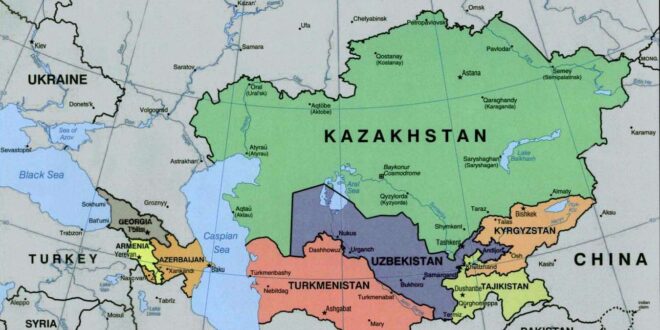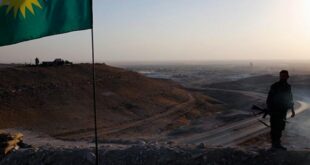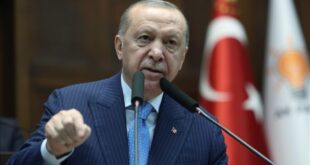The continuation of the war in Ukraine has caused important changes in the geopolitics of the peripheral regions and the axis of Eurasia, which is one of the most visible and noisy by a little distance in Central Asia, a region that plays an important role in the historical and civilizational course of the world and two Asian and European continents and it is not very well known at least in the green continent. Central Asia generally includes 5 countries, Kazakhstan, Kyrgyzstan, Tajikistan, Turkmenistan and Uzbekistan, which have significant natural and mineral resources and are a mosaic of different ethnicities and nations, and although they are ethnically related as countries of Turkish origin and Islamic religion and had largely the same geopolitical fate in the 20th century, but the fall of the Soviet Union and the period after that made them different at some levels. At present, the five main geopolitical players, namely Russia, China and the United States of America, in addition to the Islamic Republic and Turkey, have a special advantage in relation to the countries of Central Asia, which will be discussed briefly:
Russian Federation
This country has been the dominant player in this region for several centuries, because the countries of Central Asia were part of the Soviet Union, and some current events, such as last year’s developments in Kazakhstan, showed that Moscow still has a superior and decisive role and will play a role in the region if necessary. Also, in terms of identity and culture, the role of Russia in this region is very strong, which includes the Cyrillic alphabet in the Russian language and important Russian minorities. On the other hand, it should be noted that military, economic, political and security relations and infrastructure are dependent on the Kremlin and these countries have an important position between China and Russia. Of course, in the current situation, it is no secret that Russia’s influence has decreased to some extent due to the effects of the war in Ukraine, and the role of other competitors, especially China, America, European Union, Turkey, Iran and even Persian Gulf countries have been added.
China
This country has special economic, military, and demographic advantages in Central Asia, and China’s investment capacity in the Belt and Road is very attractive, while the two sides have a very old common history, a significant number of ethnic minorities, and deep-rooted economic relations, which are not easily removable and the Silk Road is also an important element that gives them a common identity from this point of view. Central Asian countries are of particular importance to China from several perspectives, and this country seeks to strengthen its influence in the region with the aim of securing its western borders against Islamist militant groups, ensuring massive energy imports and maintaining a market for Chinese goods, along with the possibility of investing in infrastructures.
Turkey
The superior role of this country goes back to benefiting from the Turkish ethnic community with religious and cultural commonalities, on the one hand, Turkey has a wide economic presence in these countries and is among the top investors in these republics, and on the other hand, as a regional energy hub, Ankara plays an important role in the energy export of Central Asia. At the same time, the political support of this country has been the factor of balance in the relations of these republics with China and Russia. Relations with Turkey are very important for Kazakhstan, Uzbekistan and other Central Asian countries, primarily because of access to Western markets, in addition to supporting multilateralism, and in the next stage, extensive military and security cooperation. Also, the tourism interactions of the parties are also very significant.
America
This country’s policy in the region is mostly focused on monitoring developments and using these republics to balance relations with Moscow and Beijing. Of course, after the Ukraine crisis, Washington’s attention to this region has increased, and Anthony Blinken’s trip to Kazakhstan and Uzbekistan can be analyzed. However, the United States’ diplomatic approach to Central Asia since 2015 has been embodied in the so-called C5+1 diplomatic platform of Kazakhstan, Kyrgyzstan, Tajikistan, Turkmenistan, Uzbekistan, plus the United States.
Islamic Republic of Iran
Our country’s relations with the Central Asian republics, despite the cultural and civilizational commonalities, have experienced several different stages in the post-collapse period, and the significant capacities for expansion of relations have not been fully utilized. It is not a secret that Iran has an important capability in exporting technical and engineering services and supplying consumer goods to these countries, especially in the energy and goods transit sector, and it seems that in the past two years, significant measures have been taken with all five republics, especially with our country’s membership in the Shanghai Cooperation Organization that the visit of the president to most of these countries and the visit of high-ranking officials of these republics and the significant increase in the volume of exchanges, along with the strengthening of defense and security interactions, are important symbols.
The fact is that the Central Asian republics do not have a single voice in spite of their significant commonalities and are in a kind of undeclared competition and are mostly engaged in the process of testing the type of interaction with the aforementioned important players; of course, Kazakhstan and Uzbekistan are more active in interacting with western countries and this region has not reached the promising balance and stability, and currently all these countries have a common concern about extremism and terrorism as a result of America’s withdrawal from Afghanistan, and the option of cooperation, especially with Russia, China and the Islamic Republic of Iran, along with Turkey, in the process of changing the global and regional order, can be effective in dispelling the multifaceted concerns of these countries and providing stability and peace in the region.
Ali Bemaneqbali Zarch, a senior expert in Eurasia
(The opinions expressed are those of the authors and do not purport to reflect the opinions or views of the IPIS)
 Eurasia Press & News
Eurasia Press & News




